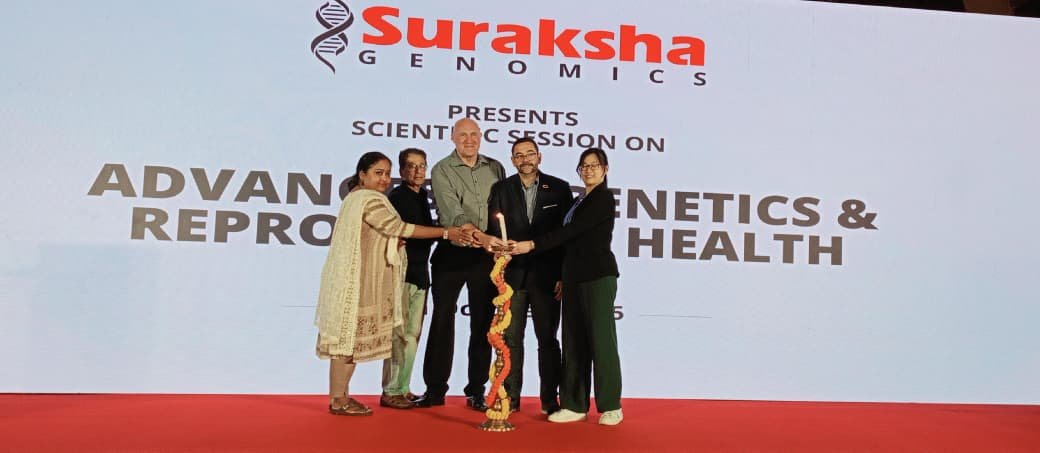
Suraksha Diagnostic Limited (“Suraksha Clinic and Diagnostics”), one of the leading diagnostics chains in Eastern India, conducted an insightful scientific session on ‘Advances in Genetics & Reproductive Health’ with eminent international experts who shared their valuable insights on the evolving landscape of Prenatal, Postnatal, and Preimplantation Genetic Testing.
The programme was attended by Dr. Michael Richardson, Senior Director, APAC, Yourgene Health, who discussed Yourgene Health NIPT and Confirmatory – Testing Development, Dr. Xin Yue Chan, Product Specialist (Reproductive Health), APJ, Thermo Fisher Scientific, who shared his insights on CytoMicroArray Applications in Prenatal and Postnatal Genetic Analysis, Alain Rico, Sr Product Manager, LSG, Thermo Fisher Scientific, who presented on PGT- A: Current Practices and Future Horizons in Preimplantation Genetic Testing.
Modern diagnostic science has advanced tremendously, with genomics playing a vital role in understanding and detecting genetic abnormalities. Prompt diagnosis helps in the early detection of rare diseases, thereby helping in subsequent treatment planning, medical intervention and reduces financial burden. In India, around 70 million people suffer from rare diseases with nearly 50-70 per cent of rare diseases occuring in children, necessitating early intervention and genetic testing.
As of 2025, the birth rate of India is around 25 million births and one in 850 babies are affected by Down syndrome caused by Trisomy 21, translating to around 30,000 to 40,000 kids being born with Down syndrome every year. Trisomy 13 affects one in every 10,000 to 20,000 newborns globally and leads to Patau syndrome. Trisomy 18 which results in Edwards syndrome, occurs in one out of every 5000 to 6000 live births as per data sources. Prenatal Genetic Testing (NIPT) helps in the identification of the three types of Trisomies and is conducted by taking a blood sample from the mother, analysing cell-free fetal DNA.
Again as per the UNFPA 2025 State of World Population (SOWP) Report, The Real Fertility Crisis, the Total Fertility Rate (TFR) in India has fallen to 1.9, below the replacement level of 2.1, with a population of 146.39 crore (as of April 2025). This translates to the fact that Indian women are having fewer children than required in order to maintain the generational population size.
A number of factors have been attributed to the declining TFR, including increased years of education for girls, improvement in maternal healthcare, greater power in the hands of women for decision-making, wider availability of modernised contraception, delayed marriage, postponing childbirth through IVF, egg freezing, embryo transfer, and other methods.
With families having fewer pregnancies, the demand for Non-Invasive Prenatal Testing (NIPT) and Microarray Testing has increased for detecting genetic disorders, as each family wants to ensure a safe pregnancy and a healthy child. In addition, in IVF, PGT-A enables testing embryos for chromosomal abnormalities prior to implantation, increasing chances of healthy live births.